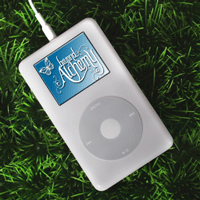 After sleeping, most people spend the largest block of their day “relaxing” in front of a television set.
After sleeping, most people spend the largest block of their day “relaxing” in front of a television set.
We’re already feeling overloaded and stressed out and we convince ourselves that an evening of television will help.
Is television making you miserable?
Here are 5 television myths – all danger signs that warn you might benefit from a TV diet.
Myth #1: “TV is harmless”
These days only the bad news seems to get reported – usually with plenty of hype. Then we’ve got the overload of crime dramas, full of gory details that are intended to shock and scare. Add to that the general level of negativity in many soap operas and it’s easy to feel wound up after an evening of TV watching.
Why on earth would we choose to spend hours a day doing something that leaves us feeling miserable, tense, stressed and even angry?
Myth #2: “But TV helps me relax”
Slumping in front of the TV is about “zoning out”, zombie-like, not relaxing.
Research has shown that watching television can cause our metabolic rate to drop even lower than if we were just resting, which has implications for long-term health and weight problems.
When I was studying to become a meditation teacher, we were regularly taught what relaxation really means. It’s about relaxing the body and mind, whilst staying alert. And it’s a process that takes effort and concentration.
How many times have you tried to talk to someone who is transfixed by a programme, only to realise they are completely unaware of you. That’s not relaxation, that’s being in a trance-like state.
Doing a deep relaxation helps you relax in just 10 minutes much more than a whole evening of TV.
Myth #3: “I Wouldn’t Know What Else To Do With The Evening”

We are all so used to sitting in front of the TV that the thought of doing something different can send us into a state of panic.
So, instead, think about the things you love doing – the kind of stuff that feeds your soul.
When they can’t watch TV, people say they love singing, dancing, reading, walks in nature, massages, cooking, eating with friends and family, gardening, exercising, playing with their kids, talking with their partner and the list goes on.
But if we’re spending our evenings in front of the television, that leaves so much less time for the things that really bring us pleasure and recharge our batteries.
So putting yourself on a TV diet could be a great way of clearing the back-log on your “to do” list and creating space for the things you enjoy most, leaving you less stressed and more energised.
Myth #4: “But won’t I get out of touch?”
If you want to know what’s going on in the news, set aside time every few days to catch the headlines on a reputable online news service. If the news affects you, it’s worth avoiding the radio news too. By reading it online, you can pick and choose which articles you read and aren’t bombarded with as much negativity.
As for other programmes, it’s up to you. If you know they’re getting you down, you’ll have to make a choice between feeling down, but knowing what was going on in them, or feeling happy and not being involved.
Myth #5: “I can’t give it up”
How about keeping a log – for a week – of the programmes you watch and how your mood is afterwards? Do you feel happy, cheerful, relaxed, irritated, frustrated, bored, angry? Do you even remember what the programme was about?
Then avoid things that make you feel bad.
If you really feel you can’t give up TV, even just for a few weeks, then make sure you become a conscious consumer. Just as we watch what goes into our food, so we need to be aware of the other things we consume – what we read, watch and listen to.
The Effects Of A TV Diet
- You’ll feel happier, because you’re not taking in as much unfiltered negativity.
- You’ll have more energy, because you’ll be more active.
- You’ll feel less stressed, because you’ll be getting more done and your “to do” list will feel manageable.
- You’ll enjoy life more, because you’ll be deliberately spending time doing things you love doing.
- Your relationships will improve, because you’ll be spending time together communicating, rather than just slumped in front of the TV.
Only you can decide how much of a role you want television to play in your life. My invitation to you is to become a conscious consumer, choosing what to watch, and enjoying life to the full in every moment that the TV is turned off. A great recipe for happiness.
I’m curious: what are your views on all this? Any insights? Any questions? How about sharing via the comments box, below?
Wishing you sunshine and laughter, today and always,
Clare
P.S. Looking for something to do with your new-found TV-free time? How about joining in with our private online community: Soul-Sized Living? It’s free and it might just change your life 🙂






 “I hate my job,” says a friend, “but there’s nothing else out there.”
“I hate my job,” says a friend, “but there’s nothing else out there.”
 Are you stressed out? Running around, doing too much, finding it hard to switch off?
Are you stressed out? Running around, doing too much, finding it hard to switch off?